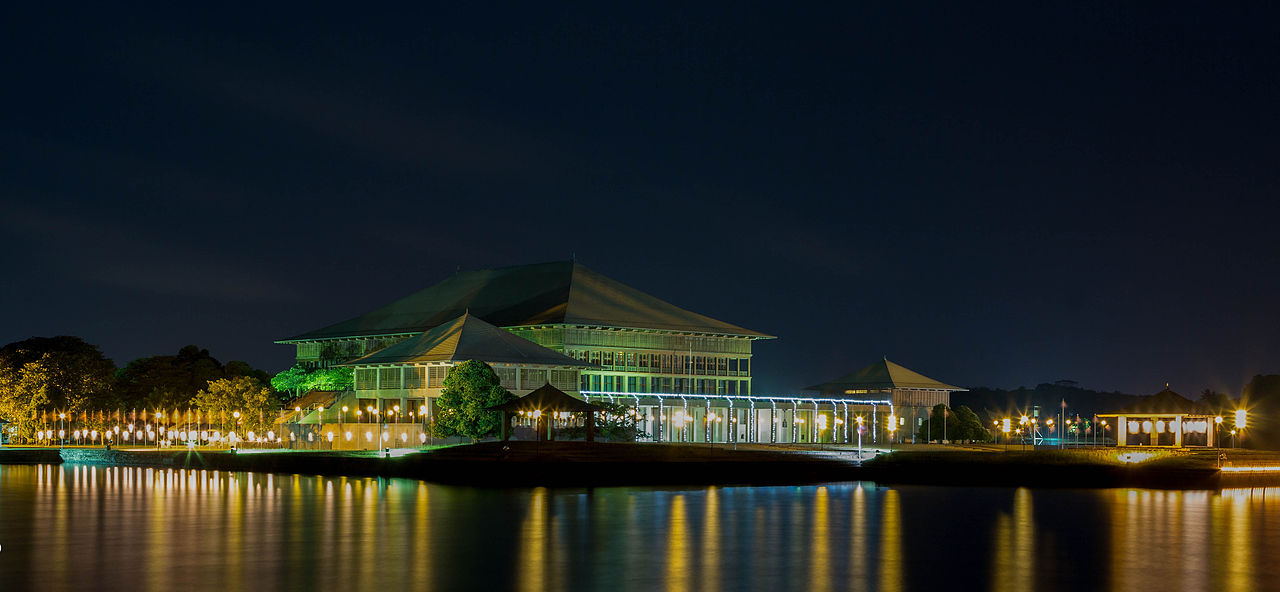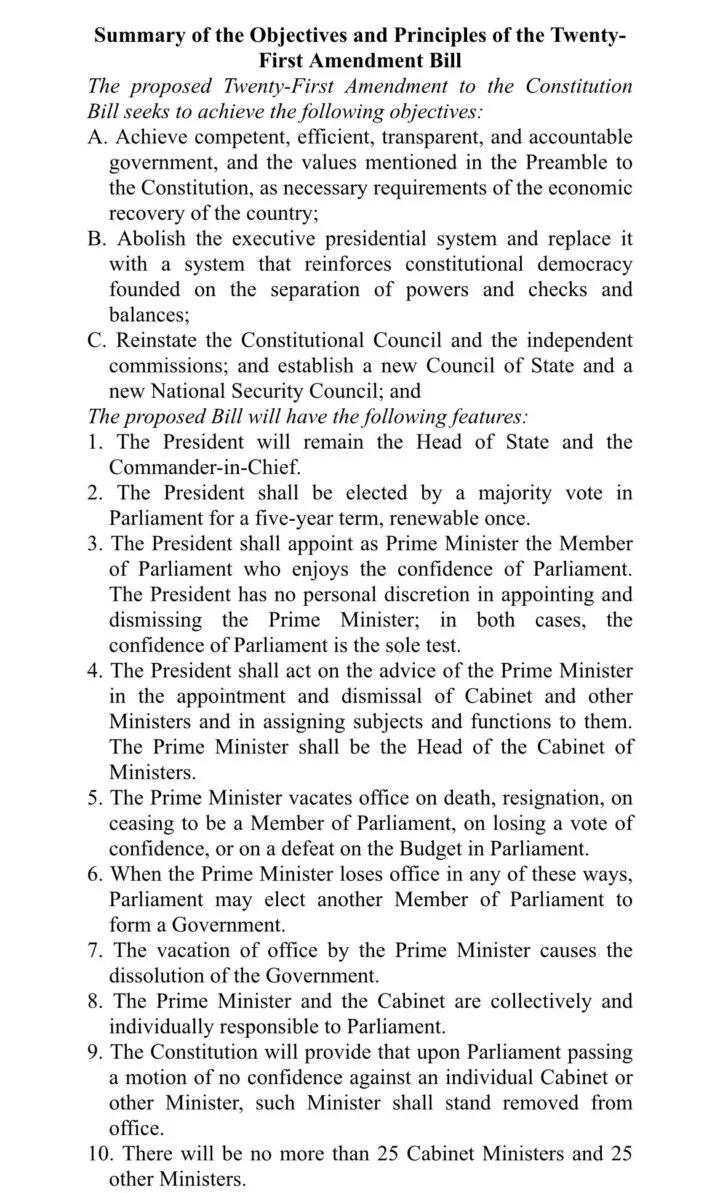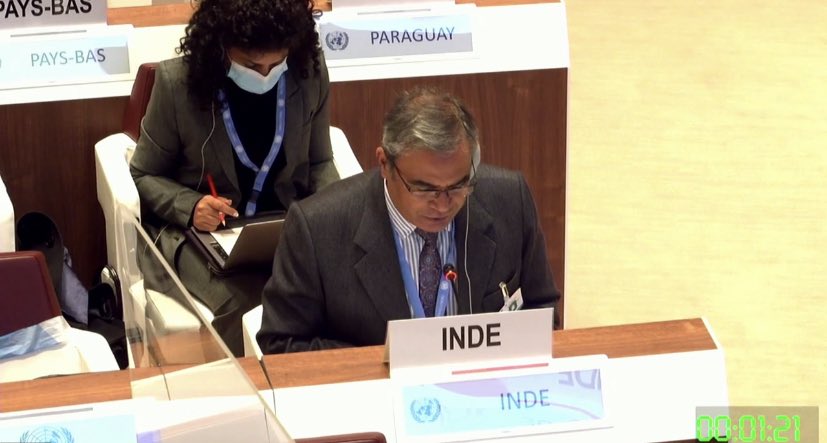
A day after Sri Lanka’s main opposition party, the Samagi Jana Balavegaya (SJB), presented a drafted proposal for the 21st amendment to Sri Lanka’s constitution, 40 independent MPs presented an alternative draft.
The SJB’s proposal would see the abolition of the executive presidential system which has been in place since 1978. In its place would see a parliamentary-led system, to which the President is accountable and elected by. A further reform would be that cabinet ministers can be removed by a vote of no confidence.
SJB parliamentarian Harsha de Silva on Thursday shared a summary of the objectives and principles of the 21st amendment bill, which is reproduced below.

The alternative draft was presented to the speaker by MP Wijeyadasa Rajapakshe and was supported by former government MPs from the ruling Sri Lanka Podujana Peramuna (SLPP), Sri Lanka Freedom Party (SLFP), and 10 other parties that make up the SLPP-led coalition.
This proposal seeks to retain key provisions in the 20th and 19th amendments.
Read their proposals in full here.
The move to abolish the executive presidency follows the passage of the 20th amendment in late October 2020 which centralised power within the executive presidency and removed several constitutional checks and balances on his power. The bill was passed with an overwhelming majority of 156 to 65.
The previous amendment to the constitution, the 19th passed in April 2015, similarly sought to reign in the powers of the Presidency expanded by the 18th amendment, passed in September 2010. The 18th amendment removed the two-term limit on a President and enabled him to appoint individuals to commissions that, prior to the amendment, had been intended as quasi-independent bodies. The 19th amendment removed the powers of the President to sack the Prime Minister at his discretion and prevented the President from dissolving parliament before four-and-a-half years of its term.
Read more here: 19th Amendment to be replaced by 20th Amendment
The 21st amendment fails to tackle Tamil demands for devolution and self-governance which were previously agreed to in the 1987 Indo-Lank accords. The 13th Amendment established the Provincial Council, promising greater devolution of land and police powers to a merged North-East. However, Sri Lanka has failed to implement the accord.
Earlier this year, Tamil political parties including the Tamil National Alliance (TNA), Tamil Makkal Thesiya Kootani (TMTK), and Illankai Tamil Arasu Katchi (ITAK) urged India to ensure that Sri Lanka abides by its commitments under the 13th Amendment and devolve power to the Tamil provinces as a starting point "towards a federal structure". The Tamil National People's Front (TNPF) have campaigned against the implementation of the 13th Amendment as it would create a setback in the political struggle for Tamil self-determination.

Last month India urged Sri Lanka to "take the necessary steps to address the legitimate aspirations of the Tamil community" during the UN Human Rights Council (UNHRC) session.
